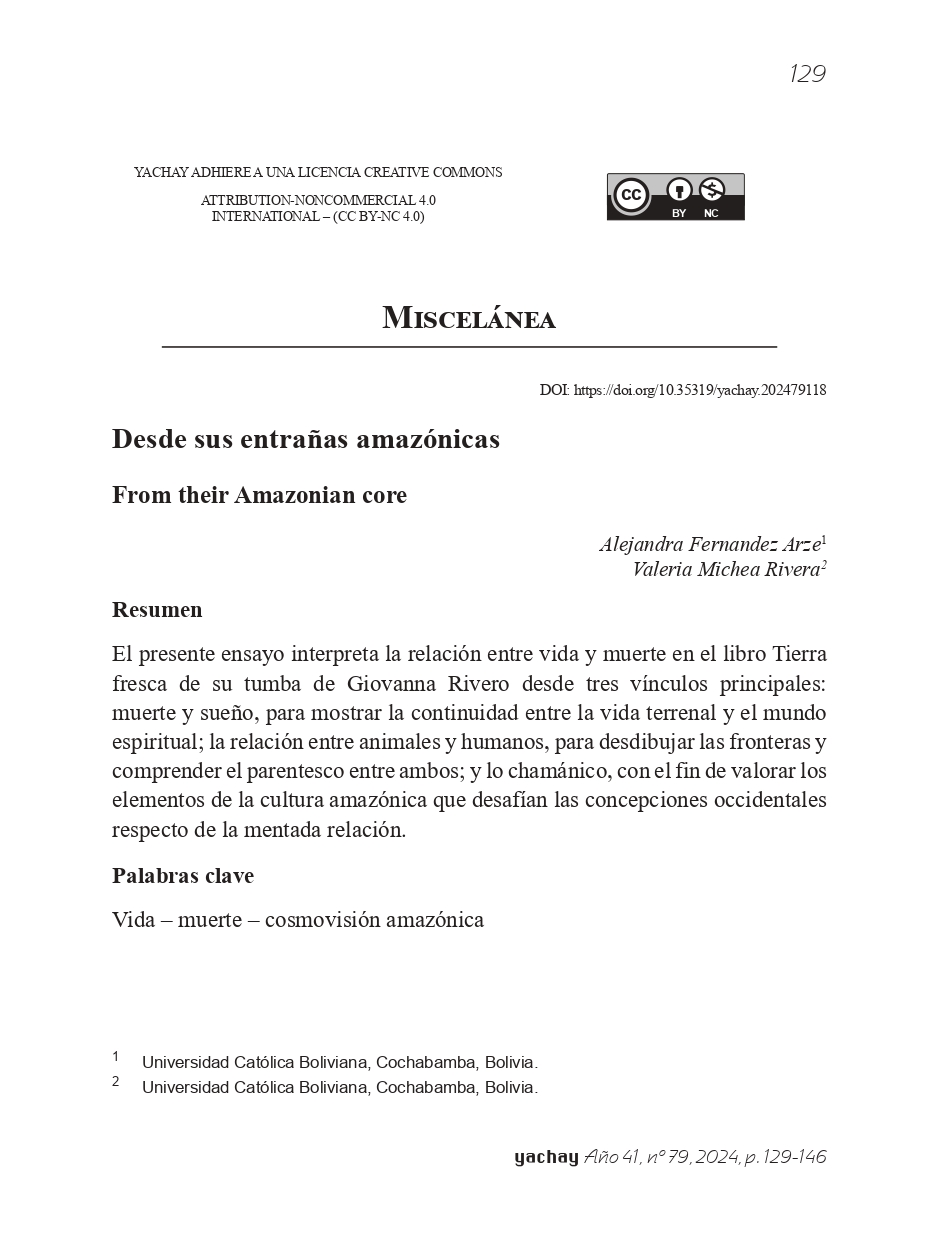From their Amazonian core
DOI:
https://doi.org/10.35319/yachay.202479118Keywords:
Life, Death, Amazonian cosmovisionAbstract
This essay interprets the relationship between life and death in Giovanna Rivero's book "Tierra fresca de su tumba" through three main connections: death and sleep, to illustrate the continuity between earthly life and the spiritual realm; the relationship between animals and humans, to blur boundaries and understand the kinship between them; and the shamanic elements, aiming to appreciate aspects of Amazonian culture that challenge Western conceptions regarding this mentioned relationship.
Downloads
References
Descola, Philippe. “Las cosmologías de los indios de la Amazonia”. Zainak, 17 (1998): 219-227.
Favaron, Pedro. “Llamando a los espíritus: Cantos sagrados de la Amazonía”. Tinkuy. Boletín de investigación y debate, 16, (2011): 149-167.
Hugh-Jones, Stephen. The Palm and the Pleiades: Initiation and cosmology in Northwest Amazonia. Cambridge: Cambridge University Press, 1979.
Luna, Luis Eduardo. Vegetalism: Shamanism among the mestizo population of the Peruvian Amazon. Stockholm: Department of Comparative Religion, 1986.
Peredo de Gonzales, María Hilda. “El nacimiento y la muerte en las comunidades del oriente boliviano”. Conferencia pronunciada en la Universidad Autónoma Gabriel René Moreno, noviembre 2007.
Piglia, Ricardo. Teoría de la prosa. Buenos Aires: Eterna Cadencia, 2019.
Riester, Juergen G. El gran fumar, chamanismo guaraní. s/l: s/e, 1993.
Rivero, Giovanna. Tierra Fresca de su tumba. La Paz: El Cuervo, 2020.
Shepard, Glenn H. Jr. “Three Days for Weeping: Dreams, Emotions, and Death in the Peruvian Amazon”, Medical Anthropology Quarterly 16, no. 2 (2002): 200-229.
Tapia, Vilma. “La muerte es la primera noche tranquila”. Yachay 36 (2002): 125-137.
Viveiros De Castro, Eduardo. “Cosmological deixis and Amerindian perspectivism”. The Journal of the Royal Anthropological Institute 4, no. 3 (1998): 469- 488.

Published
How to Cite
Issue
Section
License
Copyright (c) 2024 Yachay

This work is licensed under a Creative Commons Attribution-NonCommercial 4.0 International License.
De acuerdo a la Ley 1322 de Derechos de Autor en Bolivia, la Revista YACHAY respeta los derechos morales de los autores, amparando la parternidad e integridad de sus obras publicadas.




